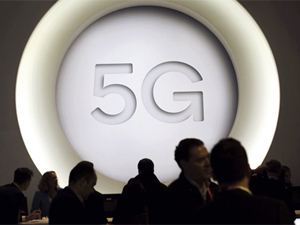



Date:26/11/18
 A joint outdoor field trial by Mitsubishi and NTT DOCOMO in Japan appears to have achieved a “world’s first” by pushing the future 5G mobile network technology to deliver maximum throughput speeds of 27Gbps and 25Gbps (communication distances of 10m and 100m respectively) via one mobile terminal in the 28GHz band.
A joint outdoor field trial by Mitsubishi and NTT DOCOMO in Japan appears to have achieved a “world’s first” by pushing the future 5G mobile network technology to deliver maximum throughput speeds of 27Gbps and 25Gbps (communication distances of 10m and 100m respectively) via one mobile terminal in the 28GHz band.
The ITU’s official “minimum requirements” for 5G performance specifies that such technologies should be able to deliver a peak downlink speed of 20Gbps and an uplink of 10Gbps, although this varies depending upon the environment and amount of spectrum available etc. (details).
However the field trial in Japan, which harnessed an antenna system with 16-beam spatial-multiplexing technology and 500MHz of bandwidth (16 x 16 MIMO), appears to have smashed through that by several Gigabits per second (Gbps) of extra performance. In this setup the base-station antennas were installed on the wall of a building, which then directed beams to mobile-terminal antennas installed on the rooftop of a vehicle.
Apparently this R&D project was commissioned by Japan’s Ministry of Internal Affairs and Communications and the trial itself took place in Kamakura (Kanagawa Prefecture). The achieved peak data rates correspond to spectral efficiency of 67bps/Hz, believed to be the “world’s best performance for 28GHz-band mobile telecommunication.”
However you’d need an extremely dense urban network and masses of fibre optic fed capacity in order to fuel this kind of setup in the real-world, which would be very expensive. Real-world performance would also be significantly slower due to the usual impacts of interference, capacity and demand etc.
By comparison a top-end conventional 4G network using 60MHz of bandwidth (4 x 4 MIMO) achieved 988Mbps over a similar distance.
5G Mobile Trial in Japan Delivers Broadband Speeds of 27Gbps
 A joint outdoor field trial by Mitsubishi and NTT DOCOMO in Japan appears to have achieved a “world’s first” by pushing the future 5G mobile network technology to deliver maximum throughput speeds of 27Gbps and 25Gbps (communication distances of 10m and 100m respectively) via one mobile terminal in the 28GHz band.
A joint outdoor field trial by Mitsubishi and NTT DOCOMO in Japan appears to have achieved a “world’s first” by pushing the future 5G mobile network technology to deliver maximum throughput speeds of 27Gbps and 25Gbps (communication distances of 10m and 100m respectively) via one mobile terminal in the 28GHz band.The ITU’s official “minimum requirements” for 5G performance specifies that such technologies should be able to deliver a peak downlink speed of 20Gbps and an uplink of 10Gbps, although this varies depending upon the environment and amount of spectrum available etc. (details).
However the field trial in Japan, which harnessed an antenna system with 16-beam spatial-multiplexing technology and 500MHz of bandwidth (16 x 16 MIMO), appears to have smashed through that by several Gigabits per second (Gbps) of extra performance. In this setup the base-station antennas were installed on the wall of a building, which then directed beams to mobile-terminal antennas installed on the rooftop of a vehicle.
Apparently this R&D project was commissioned by Japan’s Ministry of Internal Affairs and Communications and the trial itself took place in Kamakura (Kanagawa Prefecture). The achieved peak data rates correspond to spectral efficiency of 67bps/Hz, believed to be the “world’s best performance for 28GHz-band mobile telecommunication.”
However you’d need an extremely dense urban network and masses of fibre optic fed capacity in order to fuel this kind of setup in the real-world, which would be very expensive. Real-world performance would also be significantly slower due to the usual impacts of interference, capacity and demand etc.
By comparison a top-end conventional 4G network using 60MHz of bandwidth (4 x 4 MIMO) achieved 988Mbps over a similar distance.
Views: 401
©ictnews.az. All rights reserved.Similar news
- Azerbaijani project to monitor disease via mobile phones
- Innovative educational system to be improved under presidential decree
- NTRC prolongs license of two TV and radio organizations for 6 years
- Azerbaijan establishes e-registry for medicines
- Azerbaijani museum introduces e-guide
- Nar Mobile opens “Nar Dunyasi” sales and service center in Siyazan city
- International conference on custom electronic services held in Baku
- OIC secretary general to attend COMSTECH meeting in Baku
- Azerbaijan develops earthquake warning system
- New law to regulate transition to digital broadcasting in Azerbaijan
- Azerbaijani State Social Protection Fund introduces electronic digital signature
- Intellectual traffic management system in Baku to be commissioned in December
- Tax Ministry of Azerbaijan started receiving video-addresses
- World Bank recommends Azerbaijan to speed up e-service introduction in real estate
- Azerbaijan to shift to electronic registration of real estate





















